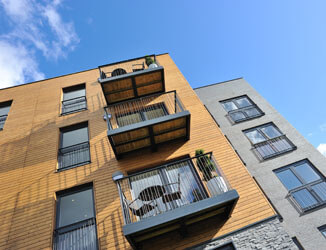Social housing performance indicators must not be used to “kick local authorities”, the Association of Retained Council Housing (ARCH) has insisted.
The government recently published its social housing Green Paper, which contains measures that it hopes will give tenants a “stronger voice to influence decisions”.
One key proposal in the document is the publication of league tables, so the performance of landlords can be highlighted and compared.
However, ARCH has raised concerns about what form these league tables will take and how they are calculated.
John Bibby, chief executive of the body, told the Local Government Chronicle that they must be “balanced”, rather than a “blunt instrument” used to criticise councils.
Similar concerns have been raised by Melanie Rees, head of policy at the Chartered Institute of Housing, who said it can be difficult to establish appropriate indicators for such a diverse sector.
Furthermore, she said league tables can be “a can opener or a tool”.
Ms Rees added that the quality of the data could also be an issue, while there are questions over whether the indicators will reflect what matters to tenants.
The government also wants to put more processes in place to support the creation of more social homes, as well as build on the new borrowing capacity granted to councils by exploring new flexibilities on how money raised through the Right to Buy scheme is spent.
Furthermore, local authorities will not be required to sell off vacant, higher value stock.
Responding to the news, Mr Bibby of ARCH said this decision will remove a “drag” on future planning.
Nevertheless, he stated that the proposed reforms to Right to Buy might not have a big impact for some time, as councils are not yet able to forecast when capital receipts will arrive.
Mr Bibby also flagged up a potential issue with the Green Paper’s plan to transfer council stock to community housing associations if tenants call for it.
He suggested this may be a “backdoor way of just getting rid of council housing again if it only applies to councils and not the whole sector”.
As a result, Mr Bibby believes this principle should apply to all providers and tenants of private registered organisations.
The government wants to underpin the proposals in the Green Paper with a tougher regulatory framework, and has launched a call for evidence on how the current system is operating.
This will run until November 6th and is deemed necessary as it has been almost eight years since social housing regulation was last reviewed.
James Brokenshire, the communities secretary, believes the Green Paper offers a “landmark opportunity for major reform to improve fairness, quality and safety to residents living in social housing across the country”.
For further information on any of the points raised in this article please contact Andrew Murray in our Social Housing Team.



